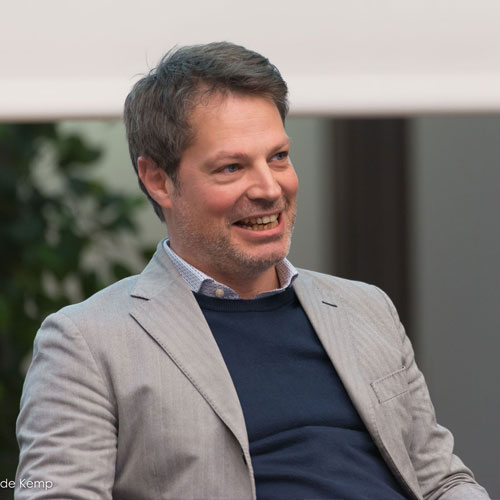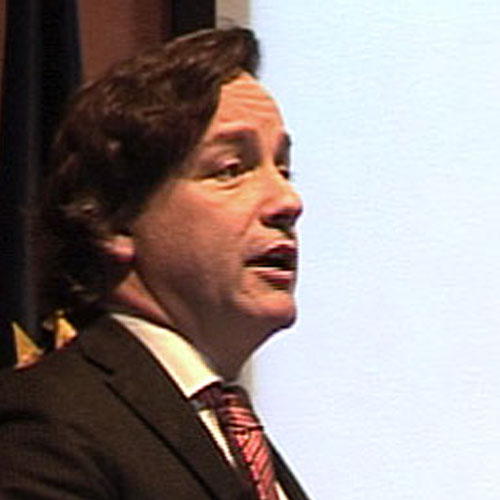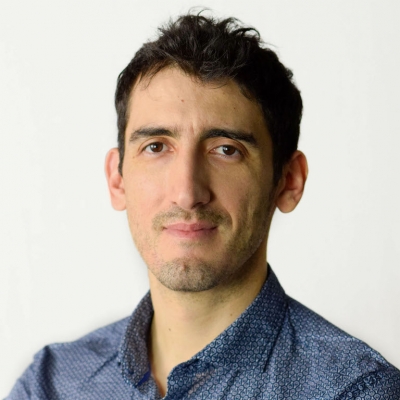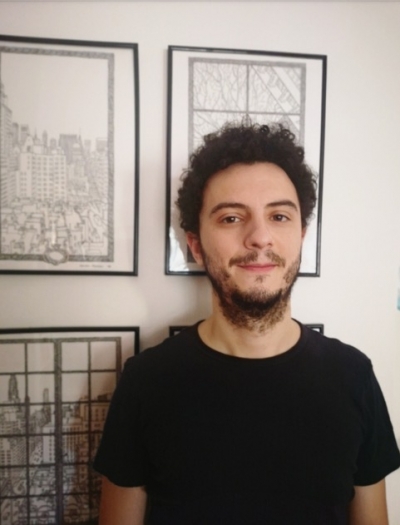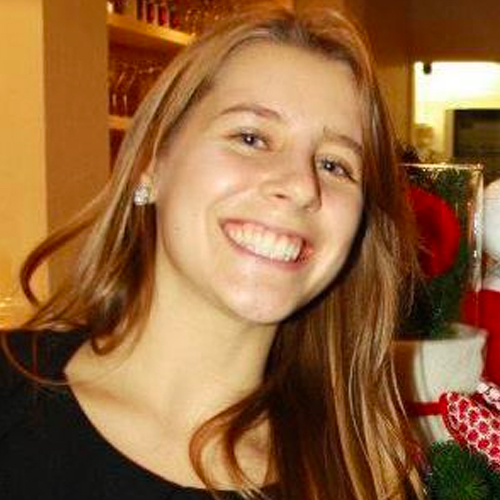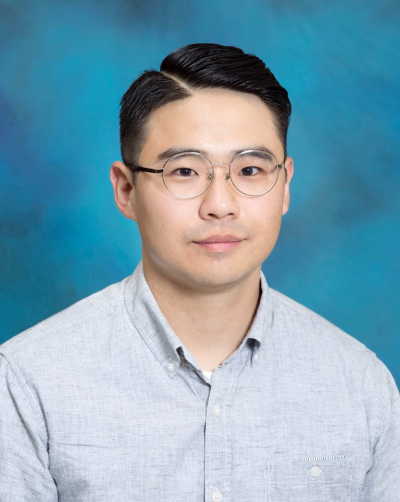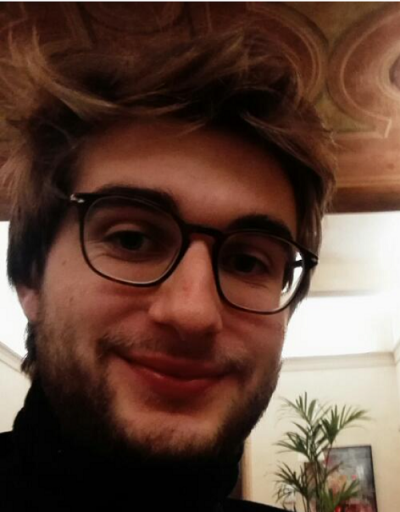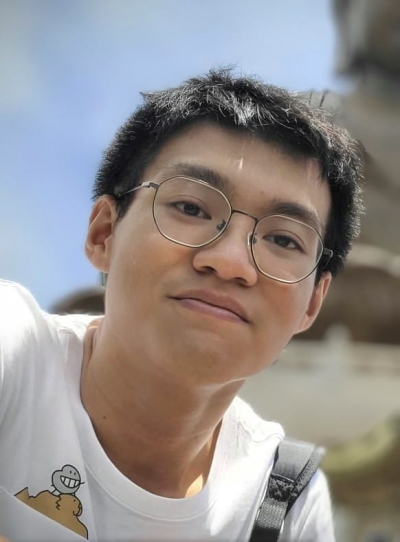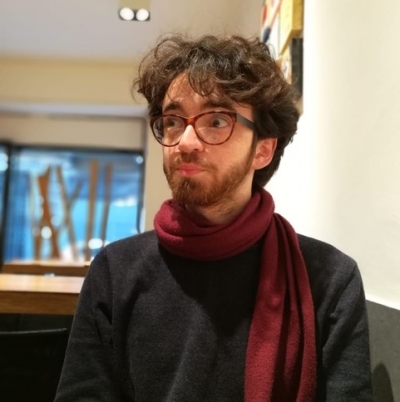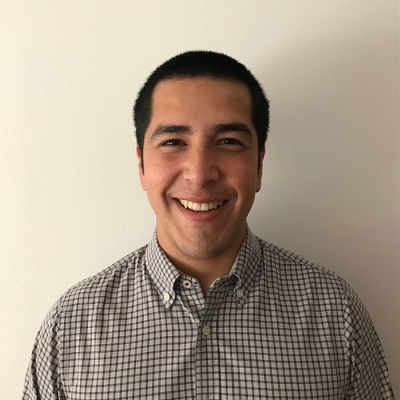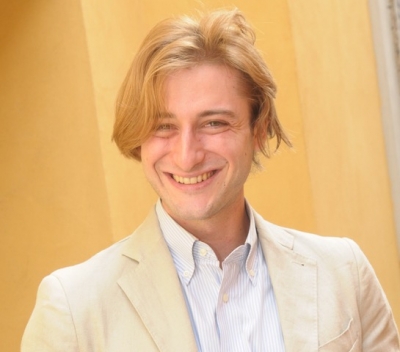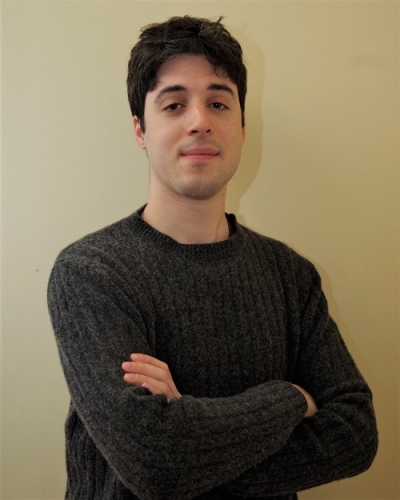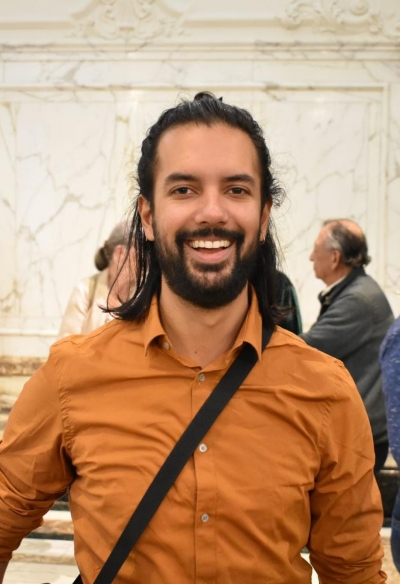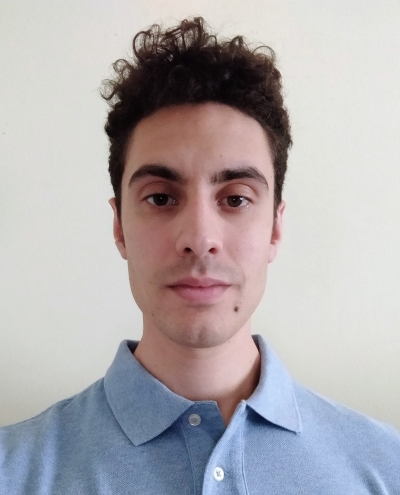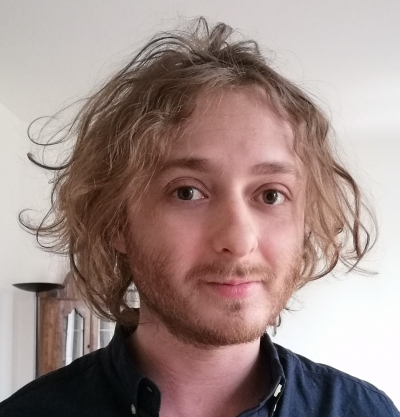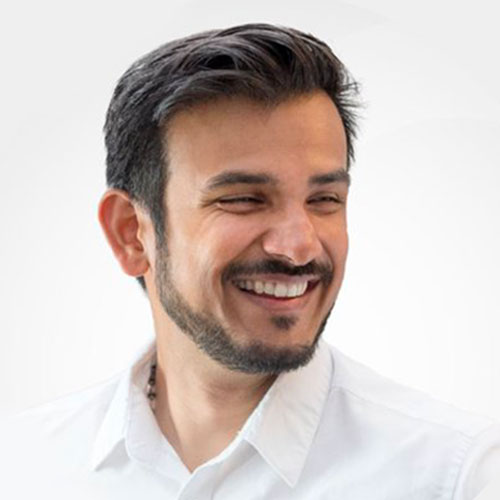Flaminio Squazzoni is a Professor of Sociology and teaches Behavioural Sociology. He is editor of JASSS-Journal of Artificial Societies and Social Simulation, and member of the editorial board of Research Integrity and Peer Review and Sistemi Intelligenti. He is advisory editor of the Wiley Series in Computational and Quantitative Social Science and the Springer Series in Computational Social Science. He is former President of the European Social Simulation Association (Sept 2012/Sept 2016) and former Director of the NASP ESLS PhD Programme in Economic Sociology and Labour Studies (2015-2016).
Phone: +390250321017
Email: flaminio.squazzoni@unimi.it
X: @squazzoni
Latest publication:
The silver lining of COVID-19 restrictions: research output of academics under lockdown. Scientometrics, 129, 1771-1786, 2024. https://doi.org/10.1007/s11192-024-04929-0. (With D. García-Costa, F. Grimaldo, G. Bravo, & B. Mehmani)
Cristiano Codagnone is a tenured Assistant Professor of Sociology. He holds a PhD in sociology from New York University (USA) and was a post-doctoral fellow at Utrecht University (The Netherlands), supported by the Marie-Curie Human Capital and Mobility Fellowship. He is Aggregate Professor at the Universitat Oberta de Catalunya (Spain), where he leads the research group ‘Open Evidence’ and of the spin-off research company Open Evidence SL. Since 2005 he has designed and conducted more than 70 applied policy research studies for international organisations, national and local governments, including experimental and quasi-experimental impact evaluations in various policy domains.
Email: cristiano.codagnone@unimi.it
X: @ccodag
Latest publication:
The impact of labour market shocks on mental health: evidence from the Covid-19 first wave. Economia politica, 40(3), 899-930. https://doi.org/10.1007/s40888-023-00304-z. (With F. Bogliacino, F. Folkvord, F. Lupiáñez-Villanueva)
Marco Cremonini is a tenured Assistant Professor of Computer Science. Formerly, he was at the Computer Science Department of the University of Milan. He received his PhD in the Department of Electronic, Computer Science, and System Engineering at the University of Bologna (Italy), while in 2000-2001 he worked as Research Assistant at the Institute for Security Technology Studies of the Dartmouth College (USA). His research interests are mostly in the area of co-evolving propagation processes in society, epidemic/behaviour, agent-based models, social aspects of information security, and risk analysis. He participates as member of European projects, and serves as Academic Editor of PLoS ONE and as Guest Editor for MDPI.
Email: marco.cremonini@unimi.it
Latest publication:
Fondamenti di data science: Python, R e open data, Milano: Egea, 2023.
Raffaele Vacca is a tenure-tracked Assistant Professor of Sociology. Before joining the Behave Lab, he was an Assistant Professor in the Department of Sociology at the University of Florida (UF, USA), where he also held affiliate appointments in the One Health Center, the Clinical and Translational Science Institute, and the Bureau of Economic and Business Research (BEBR). He is an affiliate scientist with UF BEBR and its Network Science Lab, which he co-directed before moving to Milan. Most of his work is concerned with social networks, migration, and health in Europe and the USA. He is also interested in the study of collaboration, communities and inequalities in science.
Personal website: www.raffaelevacca.com
Email: raffaele.vacca@unimi.it
X: @raffaelevacca
Latest publication:
Diversity, integration, and variability of intergenerational relationships in old age: new insights from personal network research. Social Science Research, 119, 102991, 2024. https://doi.org/10.1016/j.ssresearch.2024.102991. (With F. Bianchi)
Federico Bianchi is Assistant Professor of Sociology. He holds a joint PhD in Economic Sociology and Labour Studies from the University of Milan and the University of Brescia (Italy), where he was also a post-doctoral researcher. His main research interests are: (i) the link between economic exchange and interpersonal solidarity ties; (ii) the social mechanisms of peer-review evaluation in science; and (iii) the integration of agent-based modelling with social network analysis. He teaches a graduate course in Social Network Analysis and is assistant managing editor of Sociologica – International Journal for Sociological Debate. He has recently published Reti sociali. Meccanismi e modelli (Il Mulino, 2023, for Italian readers).
Personal website: https://federico-bianchi.github.io
Email: federico.bianchi1@unimi.it
Bluesky: @federicobianchi.bsky.social
Mastodon: @federico_bianchi@sciences.social
X: @federico_fb
Latest publication:
Diversity, integration, and variability of intergenerational relationships in old age: new insights from personal network research. Social Science Research, 119, 102991, 2024. https://doi.org/10.1016/j.ssresearch.2024.102991. (With R. Vacca)
Elena De Gioannis is a post-doctoral researcher. She holds a PhD in Economic Sociology and Labour Studies from the University of Milan’s NASP programme. She is mostly working on experimental analysis of gender stereotypes in education. She is also an expert in systematic reviews and the application of this methodology in the social sciences.
Email: elena.degioannis@unimi.it
X: @ElenaDeGioannis
Latest publication:
Exposing students to professionals working in male- and female-dominated sectors: effects of an online experiment on Italian high-school students. Italian Journal of Sociology of Education, 16(1), 1-23, 2024. https://doi.org/10.14658/PUPJ-IJSE-2024-1-1
Ayan-Yue Gupta is a post-doctoral researcher within the ConsNet project. Funded by the Italian Ministry of University and Research (PRIN P2022955FC), ConsNet is a study of conspiracy beliefs, their social network determinants (online and offline), and their impacts on health. He is a computational social scientist interested in applications of Natural Language Processing (NLP) to the study of politically relevant discourse. In his current work, he uses NLP methods and social media data to study the contents of conspiracy beliefs, their linguistic characteristics, their spread, and their potential impacts on health. He completed his PhD in Sociology at the University of Bristol (UK), where he conducted research using large language models to investigate changes in the British governmental discourse around topics such as resilience and sustainability. Beyond computational social science, Ayan has interests in the philosophy of language and pragmatics.
Personal website: https://ayanyuegupta.github.io/
Email: ayan.gupta@unimi.it
Latest publication:
Polysemy and the sociolinguistics of policy ideas: resilience, sustainability and wellbeing 2000–2020. Journal of Computational Social Science, 2024. https://doi.org/10.1007/s42001-023-00238-3.
Minsu Jang is a post-doctoral researcher within the ConsNet project, working at the Department of Statistics and Quantitative Methods of the University of Milano-Bicocca. Funded by the Italian Ministry of University and Research (PRIN P2022955FC), ConsNet is a study of conspiracy beliefs, their social network determinants (online and offline), and their impacts on health. Minsu is a political scientist exploring mass political behavior with a focus on political information processing. He earned his PhD in Political Science from the University of Pittsburgh (USA) in 2024. His dissertation examines the effects of cognitive biases on source credibility assessment and their societal impacts using computational models. As a graduate student, Minsu worked at the Pitt Disinformation Lab, which combats disinformation by strengthening social connections in the region. His research employs a variety of methods, including computational and behavioral modeling, controlled experiments, and computational tools such as text-as-data and machine learning.
Personal website: https://minsujang25.github.io/
Vieri Pistocchi is a post-doctoral researcher in the NetHealth project, funded by Fondazione Cariplo (project number 2023-0859). NetHealth studies social relationships and networks as determinants of health inequalities between socioeconomic, geographic, and migration-status groups in Lombardy. For his PhD in Sociology at the University of Trento (Italy), Vieri used a combination of social network and survey data, as well as advanced statistical models for networks, to examine the impact of bullying and negative relationships on the integration of Muslim youth in Germany. He completed his MA in sociology at the University of Mannheim (Germany) and his BA in political sciences and international studies at the University of Florence (Italy), with additional studies at the University of Salamanca (Spain) and the University of Groningen (The Netherlands). Vieri’s research focuses on social network methods, negative relations, and processes of immigrant integration.
Email: vieri.pistocchi@unimi.it
Francesco Renzini is a post-doctoral researcher in the EU funded FAiR “Finding Agreement in Return” research project. He defended his dissertation on “Computational and Experimental Studies in Network Formation” on 24 April 2024 at the University of Milan, within the NASP Economic Sociology and Labour Studies Programme. His main interests are network formation, the integration of agent-based models and network analysis, and the experimental analysis of social behaviour.
Email: francesco.renzini@unimi.it
Latest publication:
Status, cognitive overload, and incomplete information in advice-seeking networks: an agent-based model. Social Networks, 76, 150-159, 2024. https://doi.org/10.1016/j.socnet.2023.09.001. (With F. Bianchi & F. Squazzoni)
William Chung is a PhD student within the NASP Economic Sociology and Labour Studies programme. William holds a double degree of BSS(GL) & LLB at the University of Hong Kong (China) and an MA in International Relations (Global Political Economy) at the University of Leiden (The Netherlands). His research interest is on the experimental and computational study of social norms, social dilemmas, and collective behaviour.
Email: yick.chung@unimi.it.
Margherita Criveller is a PhD student within the NASP Economic Sociology and Labour Studies programme. She holds a BA in Economic History from Ca’ Foscari University of Venice (Italy) and a MA in Global Politics and Society from the University of Milan. Her research interests intertwine the historical perspective with behavioural game theory and social network analysis of labour markets. She is currently studying the networks of Italian mercenaries in the 1400s, delving into the institutional aspects and social norms that governed the relationships between regional states and mercenaries’ familial companies.
Email: margherita.criveller@unimi.it.
Carlo Debernardi is a PhD candidate in a cotutelle agreement between the University of Milan (NASP programme in Economic Sociology and Labour Studirs) and the University of Agder (Norway). He holds a BA in Philosophy at the University of Turin (Italy) and an MA in Logic, Philosophy and History of Science at the University of Florence (Italy). His research interests are in the sociology of science, scientometrics, network analysis, and agent-based modelling. His current research focuses on how social and institutional factors influence the selection of research topics by scholars.
Personal page: https://carlodebernardi.github.io/.
Email: carlo.debernardi1@unimi.it.
Latest publication:
Thirty years of climate change research: a fine-grained analysis of geographical specialization. Environmental Science & Policy, 152, 103663, 2024. https://doi.org/10.1016/j.envsci.2023.103663. (With M. Seeber & M. Cattaneo)
Esteban Muñoz is a PhD candidate at the University of Milan within the NASP Economic Sociology and Labour Studies programme. He holds a BA and a MA in Sociology from Pontificia Universidad Católica de Chile. Esteban has also worked as adjunct instructor at Universidad Andrés Bello and Pontificia Universidad Católica de Chile. His main research interests are: (a) social networks and their integration with agent-based modelling; (b) social mechanisms for the development of cooperation; and (c) the diffusion of scientific knowledge.
Email: esteban.munoz@unimi.it.
Twitter: @estebanmsch.
Latest publication:
Nonresponse in name generators across countries and survey modes. Social Networks, 79, 93-103, 2024. https://doi.org/10.1016/j.socnet.2024.06.002. (With R. González & A. Fuentes)
Pietro Saccomanno is a PhD student within the NASP Economic Sociology and Labour Studies programme. Pietro holds a BA in Communication and Society and an MA in Digital Communication and Public Opinion from the University of Milan. His research interests are in the field of behavioural sociology and experimental methods applied to social media settings. He is currently developing a study on the influence of Internet memes on young adults’ political polarization.
Email: pietro.saccomanno@unimi.it.
Fabio Torreggiani is a PhD candidate within the NASP Economic Sociology and Labour Studies programme. He is fully funded by Collegio Carlo Alberto. He holds a BA and a MA in Political Science from the University of Bologna (Italy). His research interests are in the field of computational social sciences and the study of fake news detection using gamified online social experiments. He also worked on agenda setting and political communication on social media.
Email: fabio.torreggiani@unimi.it
Nigel van Herwijnen is a PhD student under cotutelle with the Department of Social and Cultural Anthropology of the Autonomous University of Barcelona (Spain). He is involved in the ERC-funded PATCHWORK project, in which he studies the effects of individual acquaintanceships on social cohesion in a nation-scale population using qualitative data, quantitative data, and agent-based modelling. He holds a BSc in Physics and Astronomy and an MSc in Computational Science, both obtained at the University of Amsterdam (the Netherlands). His research focusses on the question of what makes a society have trust in its own members, and how those elements are related to different ways that individuals build trust in their social relationships.
Email: nigel.vanherwijnen@unimi.it
Marco Venturini is a PhD student within the NASP Economic Sociology and Labour programme. He holds a BA in Political Sciences and International Relations and a MA in Economic, Finance and International Integration from the University of Pavia (Italy). He is pursuing a joint degree with Sorbonne University (France). His main research interests are: cryptocurrencies and financial markets, agent behaviour and trust within economic exchanges, the integration of social network analysis and agent-based modelling.
Email: marco.venturini@unimi.it.
Former member
Gian Luca Pasin was a PhD student within the NASP Economic Sociology and Labour Studies programme. He defended his dissertation on “Social determinants of tax evasion: An experimental study” on 5 October 2023. He is currently a post-doctoral researcher at the Italian National Research Council (CNR). His research interests are in the field of behavioural game theory and experimental methods applied to social dilemmas, more specifically the interaction between incentives and social norms in shaping individuals’ tax morale.
Email: gianluca.pasin@unimi.it.
Former member
Shyaam Ramkumar was a PhD student at the NASP Economic Sociology and Labour Studies programme. Shyaam holds a BSc in Economics from Northwestern University and a MSc in Industrial Ecology from the Norwegian University of Science and Technology. His research interests are to use agent-based models to understand the behaviors and relationships of supply chain actors that lead to the development and diffusion of sustainable and circular innovation. He successfully defended his dissertation on 23 May 2022. Based in Atlanta, USA, he is working in scaling sustainability and circular economy-focused innovations using network theories and models.
Contact him here.


